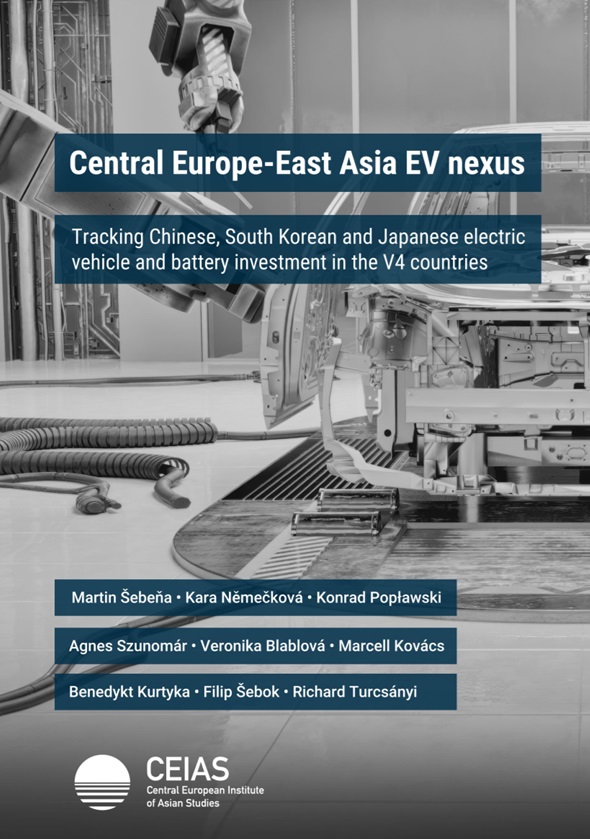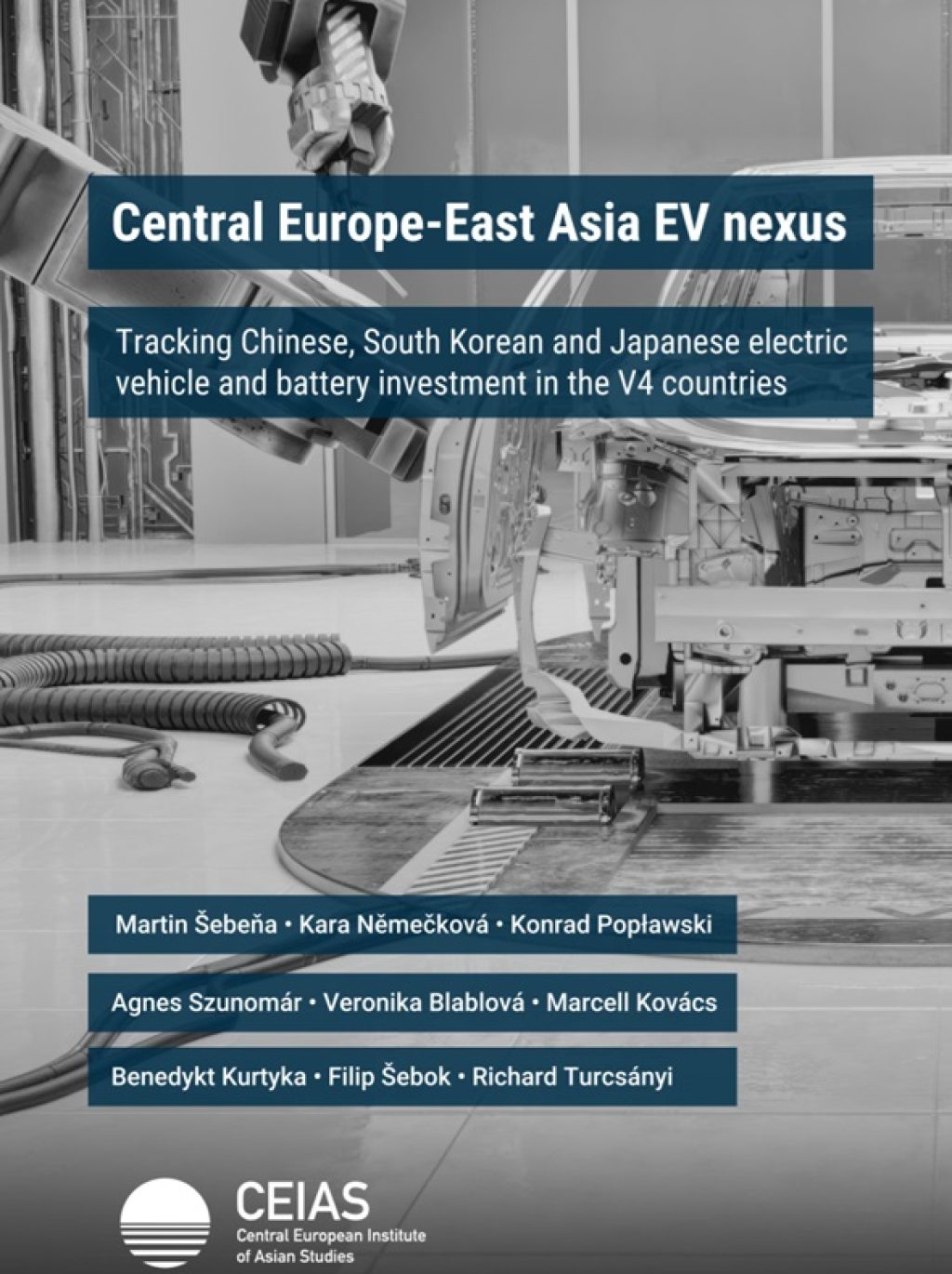Central Europe-East Asia EV nexus
Tracking Chinese, South Korean and Japanese electric vehicle and battery investment in the V4 countries
Szerzők: Martin Šebeňa, Kara Němečková, Konrad Popławski, Ágnes Szunomár, Veronika Blablová, Marcell Kovács, Benedykt Kurtyka, Filip Šebok, Richard Turcsányi
Kiadó: Central European Institute of Asian Studies
ISBN: 978-80-8239-029-5
Absztrakt
A confluence of factors is challenging the industrial structure and the long-standing business model of four Central and Eastern European (CEE) countries: Czechia, Hungary, Poland, and Slovakia—collectively known as the Visegrad Four (V4). Since their transformation from command economies to free markets in the early 1990s, the automotive industry has been a backbone of their manufacturing sectors and, by extension, their economies.
Two major trends emerging in the 2020s now pose considerable challenges to the V4’s established automotive sectors: the rise of EVs and the increase in geopolitical tensions and protectionism. East Asian EV and battery producers have surpassed their European counterparts in terms of production processes and technological expertise. At the same time, geopolitical tensions, such as tariffs, transportation risks, and military conflicts, have disrupted free trade and reshaped the export pathways of the automotive industry.
This paper provides a comprehensive overview of EV and battery investments by East Asian firms from China, South Korea, and Japan across the V4 region and discusses national approaches to cooperation with East Asian investors. The authors outline how Central European countries might leverage the transition, including the investments of East Asian companies, by focusing on policies that facilitate technology transfer, increase value-added, boost workforce development, and enhance R&D in the automotive sector.
The publication is one of the results of the project “East Asian electric vehicle makers in the V4 countries’ electric vehicle transition” coordinated by CEIAS and implemented in cooperation with OSW Centre for Eastern Studies (Poland), Palacký University Olomouc (Czech Republic), Corvinus University of Budapest (Hungary).
The project is co-financed by the governments of Czechia, Hungary, Poland and Slovakia through Visegrad Grants from the International Visegrad Fund. The mission of the fund is to advance ideas for sustainable regional cooperation in Central Europe.




